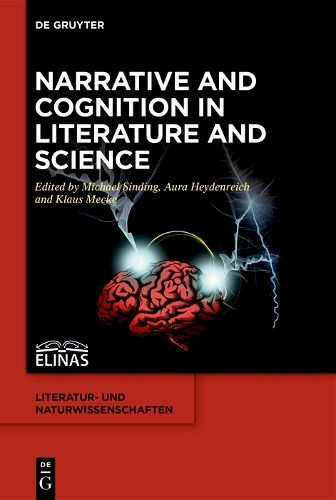Readings Newsletter
Become a Readings Member to make your shopping experience even easier.
Sign in or sign up for free!
You’re not far away from qualifying for FREE standard shipping within Australia
You’ve qualified for FREE standard shipping within Australia
The cart is loading…






This volume explores cognitive perspectives on how science and narrative shape one another.
Narrative is a principle of cognition, and cognition is fundamental to narrative. This duality enables a deeper mapping of the feedback between story and the natural sciences.
Science, as a culturally-organized and systematic mode of knowing the world, may seem opposed to narrative thinking. Yet they are deeply interwoven.
Scientists tell many kinds of stories, across genres and media. In thought experiments, lab experiments, written arguments, and histories and philosophies of fields, they recount and interpret unfoldings of events at often uncanny scales-from particle collisions to the evolution of life to cosmic expansion.
Science stories go beyond science. Early science is entwined with myth, religion and magic. We still mythologize beneficent or evil geniuses, the promises and perils of technology. Teachers, journalists, politicians and lawyers all tell science stories for their own purposes. Literary artists use scientific ideas and forms, reimagining physical forces, causality and time in storyworlds, themes and figures.
This is the first cognition-focused multi-disciplinary analysis of these narrative-science relations.
$9.00 standard shipping within Australia
FREE standard shipping within Australia for orders over $100.00
Express & International shipping calculated at checkout
This volume explores cognitive perspectives on how science and narrative shape one another.
Narrative is a principle of cognition, and cognition is fundamental to narrative. This duality enables a deeper mapping of the feedback between story and the natural sciences.
Science, as a culturally-organized and systematic mode of knowing the world, may seem opposed to narrative thinking. Yet they are deeply interwoven.
Scientists tell many kinds of stories, across genres and media. In thought experiments, lab experiments, written arguments, and histories and philosophies of fields, they recount and interpret unfoldings of events at often uncanny scales-from particle collisions to the evolution of life to cosmic expansion.
Science stories go beyond science. Early science is entwined with myth, religion and magic. We still mythologize beneficent or evil geniuses, the promises and perils of technology. Teachers, journalists, politicians and lawyers all tell science stories for their own purposes. Literary artists use scientific ideas and forms, reimagining physical forces, causality and time in storyworlds, themes and figures.
This is the first cognition-focused multi-disciplinary analysis of these narrative-science relations.